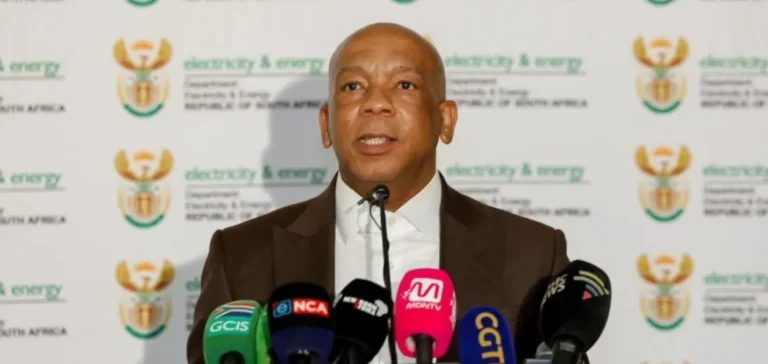South Africa has officially removed the Pebble Bed Modular Reactor (PBMR) project from its maintenance phase, following cabinet approval and accompanied by the transfer of PBMR Ltd from Eskom to the South African Nuclear Energy Corporation (Necsa). This move is part of a public policy to revive the country’s dormant nuclear programme.
Reopening laboratories and restarting scientific operations
Minister of Electricity and Energy Kgosientsho Ramokgopa stated that the decision will allow the reopening of nuclear fuel development laboratories, which had been shut down since the project was suspended. He said scientists would once again engage in research and development activities to reposition South Africa within the nuclear fuel cycle.
Designed as a high-temperature small-scale reactor, the PBMR was intended to use uranium oxycarbide TRISO (Tri-structural Isotropic) fuel embedded in graphite spheres, with helium as the coolant. The project began in 1993 and was commercially structured through PBMR Ltd in 1999. However, in 2010, the government halted funding, and in 2012 the project was integrated into Eskom and placed under care and maintenance.
Industrial recovery target after 16 years of shutdown
The government now plans to recover from an estimated 16-year delay. Ramokgopa said this revival is part of a broader strategy to expand nuclear energy, supported by the recent adoption of a draft Integrated Resource Plan that includes 5,200 MW of new nuclear capacity.
In parallel, the South African government will invest up to ZAR2.1bn ($123mn) to build a central interim storage facility for spent fuel, complementing the existing Vaalputs site now managed by the National Radioactive Waste Disposal Institute (NRWDI).
Regional strategy and fuel cycle development
South Africa also aims to strengthen its participation across the full nuclear fuel cycle by exploring partnerships with neighbouring countries for uranium enrichment. The government intends to develop a fully integrated and locally controlled nuclear value chain.
Necsa Group Chief Executive Officer Loyiso Tyabashe welcomed the transfer as a strategic lever to reactivate what he described as a critical scientific and industrial asset. Necsa plans to produce nuclear fuel domestically and pursue partnerships for the development of PBMR-related technology and intellectual property.






















